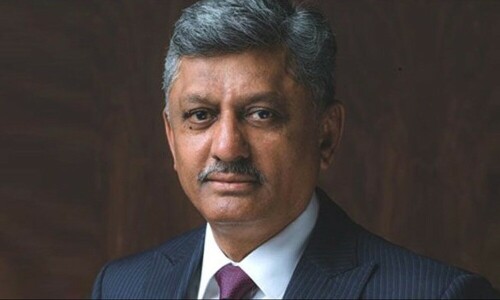Budget Fails to Address Key Economic Issues, Risks Increased Joblessness, Says PRAC
The Policy Research and Advisory Council (PRAC) has stated that the current budget inadequately tackles essential challenges, particularly within the industrial sector. This shortfall could potentially escalate unemployment and destabilize Pakistan’s already delicate economic condition.
In a statement released on Tuesday, PRAC Chairman Mohammad Younus Dagha acknowledged the budget’s innovative elements, such as the Green Sukuk. He noted that this signals a move towards sustainability, demonstrating the government’s dedication to ecological matters.
Positive Aspects Acknowledged
He commended the 1.5% decrease in withholding taxes on property transactions across all tax brackets, alongside the elimination of the 7% Federal Excise Duty on property transfers, steps anticipated to invigorate the real estate and construction industries. The tax breaks provided to salaried individuals were also applauded.
Concerns Raised Over Revenue Targets
However, Dagha expressed concern that the absence of a higher minimum tax threshold might not sufficiently relieve the burden on the most vulnerable and heavily taxed segments of the population. Furthermore, he suggested that the budget’s reliance on optimistic revenue targets and growth forecasts is ‘disconnected from economic realities.’
He stressed that these ambitious projections disregard current macroeconomic limitations, potentially leading to ‘unachievable expectations and exacerbate the nation’s fiscal challenges.’
Debt Servicing and Development Spending
Dagha also highlighted concerns regarding the nation’s fiscal wellbeing, particularly in relation to debt servicing, which is projected to consume 50.4% of the current expenditure and 74.1% of net federal revenues in FY26. He warned, ‘This severely limits the resources available for developmental spending.’
The reduction in the Federal Public Sector Development Program by 29%, from PKR 1,400 billion to PKR 1,000 billion for the upcoming fiscal year, ‘will undermine crucial initiatives, slow job creation, and hinder long-term economic growth,’ the statement noted.
‘By slashing development spending, the government risks undermining long-term economic progress and stability,’ Dagha stated. ‘The reduction in PSDP funding directly contradicts the need for investment in infrastructure, education, and healthcare.’
Neglect of Key Sectors
PRAC also voiced apprehension over the lack of specific support for the industrial sector, which experienced a 1.5% contraction in the first nine months of FY2025. Additionally, it noted that despite a widening trade deficit in services, the budget failed to introduce specific incentives for Pakistan’s IT sector, thereby missing an opportunity to capitalize on its potential for economic advancement.
Similarly, the absence of export-oriented growth measures represents ‘a critical oversight in boosting foreign exchange earnings and strengthening the country’s economic stability.’
Karachi’s Infrastructure Needs
Dagha also drew attention to the insufficient funds allocated for Karachi, which is now ranked as the fifth least livable city worldwide. ‘With only PKR 3.2 billion allocated for the K-IV water supply project, a vital initiative to address the city’s ongoing water crisis, the budget allocation is deemed inadequate,’ the statement asserted. It further mentioned that several essential projects under the Karachi Transformation Plan, initially announced in 2020, remain largely unaddressed.
‘This was a rare opportunity to implement transformative reforms in critical areas such as education, healthcare, and infrastructure,’ Dagha commented. ‘Regrettably, the budget largely missed the chance to enact meaningful reforms in these vital sectors.’
Call for Reconsideration
PRAC has urged the government to reassess the budget and implement measures that can effectively respond to Pakistan’s economic realities. ‘There is an urgent need for a more balanced approach that focuses on sustainable growth, fiscal responsibility, and targeted support for key sectors such as industry, technology, and social welfare,’ the council concluded.



Comments (0)
No comments yet. Be the first to comment!
Leave a Comment